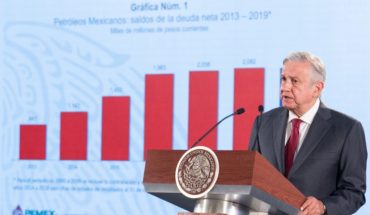
This Friday, President Sebastián Piñera, accompanied by the Ministers of Justice, Hernán Larraín; Treasury, Rodrigo Cerda; Economy, Lucas Palacios; and the Segpres, Juan José Ossa, presented the draft new Civil Procedural Reform and reform to the system of appointment of judges.
Piñera emphasized that “the strength of a nation is based on the prestige and quality of its institutions. One of our country’s strengths since its birth as an independent nation has been its institutional strength and to prevent its weakening, it is necessary to constantly review and refine them, and adapt them to the new and changing needs of society.”
In this regard, the Representative asked Congress, “with whom we have discussed this matter on multiple occasions, to analyze, refine and move forward quickly these important and urgent reforms, which will undoubtedly improve not only access to justice, but also the dignity and quality of life of all our compatriots.”
In this way, the Executive decided to continue with the legislative processing of the draft Civil Procedure Code initiated during the first government of the representative and which was suspended in the Senate after the House rejected some aspects of the original draft.
The Currency stated that it improved these aspects in this new proposal:
Increased coverage: from 136 to 164 communes in the country where civil justice services would be available.
Decrease in processing times: there would be a decrease in processing times of 60% for ordinary procedures and 87% for summaries.
Increase in the number of judges: the number of judges increases by 76%, with at least two in all courts with civil jurisdiction in the country.
New line of public attention and mediation: Within the impact of income from reformed civil courts, the Government expects at least 200,000 cases to enter the judicial mediation service.
Reduced costs for users: procedures are incorporated that enable the appearance without a lawyer and enshrine remote avenues for the realization of certain actions and diligences, such as in the area of sponsorship and power constitution, notifications, electronic auctions and hearings.
Compliance efficiency: Tools are introduced that would encourage increased recovery due to the incorporation of technology such as electronic auctioning.
With regard to the system of appointments of judges, the Government hopes to “transparent and prioritize meritocracy in appointing judges and strengthen their internal independence, closing the spaces of discretion of hierarchical superiors”.
To this end, the Court’s power to draw up the returns to send the president is eliminated and replaced by regulated public competitions, with binding results, and a National Commission on Judicial Appointments is established.





